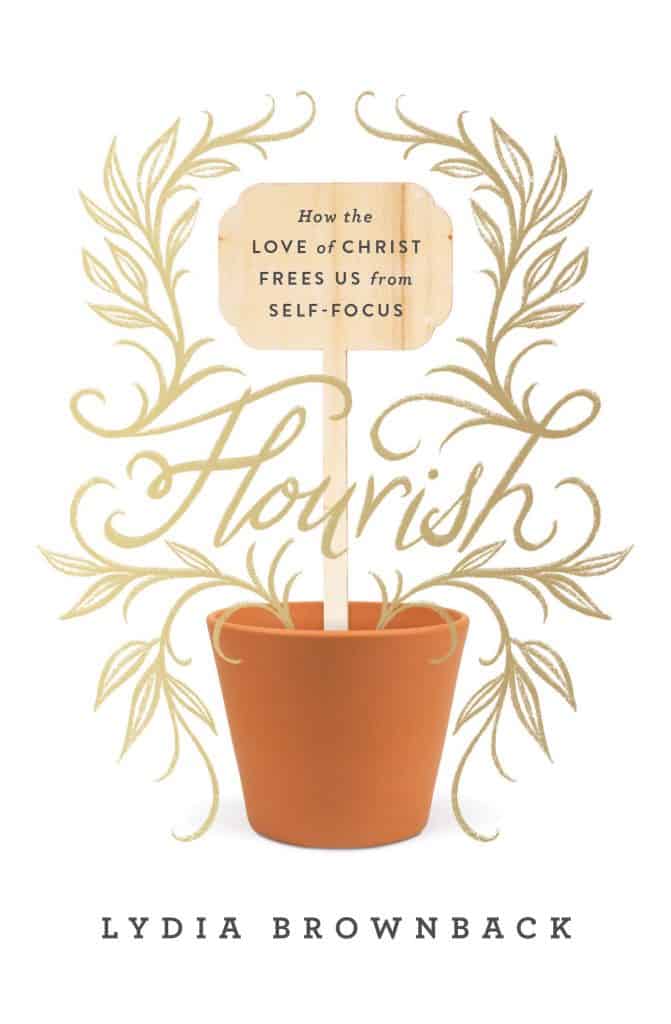⏱️ Estimated Reading Time: 3 min read
Christian women seem to love advice. We write it, share it, put it in pretty fonts on beautiful backdrops, set it to music. Most importantly, we buy it. Books marketed to women often invite to take better care of ourselves or better understand ourselves. We are convinced we can solve our own problems if we only “stop apologizing” or follow other maxims of inspiration.
But the gospel is not a message of self-help. In Flourish, Lydia Brownback reaches out a hand to lift our chins and raise our eyes to Christ instead of dwelling on ourselves.
Brownback reminds us that the solutions to our deepest needs are not going to come from within. In fact, each of the six chapters of her book identifies a way in which we can be trapped in self-centeredness. In clear, direct language Brownback calls out misleading advice, often full of biblical references, that fails to offer women the full hope of the gospel because it convinces women that the solution to their problem is something inside themselves. Brownback explains subtle distinctions, helping women to see that discipleship is NOT a process of self-improvement. She reminds women that “We haven’t been saved in order to maximize our personal potential and become better versions of ourselves.” Occasionally, she quotes other authors who have woven together worldly messages of self-improvement with scriptural references but she always does so in a spirit of loving discernment. I was grateful for the ways in which she untangled the gospel from the “moral therapeutic deism” that has become so prevalent.
In her chapter on freedom from self-analysis, she turns our eyes to Christ because “a life curved inward, analyzing and evaluating every mood change and desire, is a stunted, joyless life.” Brownback’s reminders are as urgent as they are kind. In each chapter, she distinguishes between the gospel and the subtle messages of self-consciousness, self-improvement, self-analysis, self-indulgence, self-condemnation, and self-victimization. Brownback knows that “when our goals begin and end with ourselves, frustration and discouragement are sure to set in, and we’re likely to wind up looking for relief in some other way–a new method or program or book or teaching… When we’ve reached this point, we’ve made ourselves vulnerable to a lot of unbiblical teaching.”
Women, let us be discerning readers who can recognize poor substitutes for the gospel. From the earliest days of the church until now, there have always been “people who smooth-talk themselves into the homes of unstable and needy women and take advantage of them; women who, depressed by their sinfulness, take up with every new religious fad that calls itself ‘truth.’ They get exploited every time and never really learn” (2 Timothy 3:6-7, The Message). Don’t be left hopeless by another book that offers self-help in place of Christ. Let Brownback refresh you with the joy of the gospel. I don’t keep every book I review, but this one has found a place on my shelf because it is a book I know I will return to again.



